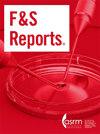Impact of gonadotropin selection on risk of ovarian hyperstimulation syndrome in predicted high responders: a Menopur in Gonadotropin-releasing hormone Antagonist Single Embryo Transfer–High Responder trial analysis
IF 2.2
引用次数: 0
Abstract
Objective
To evaluate the risk of ovarian hyperstimulation syndrome (OHSS) with highly purified human menopausal gonadotropin (HP-hMG) or recombinant follicle-stimulating hormone (rFSH) for controlled ovarian stimulation in patients predicted to be high responders.
Design
Post hoc analysis of a randomized, open-label, assessor-blind, parallel-group, noninferiority trial conducted at 31 US fertility centers.
Subjects
620 women with serum anti-Müllerian hormone (AMH) ≥5 ng/mL.
Intervention
Controlled ovarian stimulation with HP-hMG or rFSH in a gonadotropin-releasing hormone antagonist assisted reproductive technology cycle. Human chorionic gonadotropin trigger and fresh transfer of a single blastocyst was performed unless ovarian response was excessive; in this case, subjects received gonadotropin-releasing hormone agonist trigger and all embryos were cryopreserved. Subjects could undergo frozen blastocyst transfers within 6 months of randomization.
Main Outcome Measures
Demographic differences between subjects who developed OHSS and those who did not; incidence of OHSS based on trigger type; interaction between baseline AMH and oocyte yield by treatment group; and OHSS incidence based on number of oocytes retrieved by treatment group.
Results
Subjects who developed early OHSS were significantly younger, with lower weight and body mass index, shorter duration of infertility, and lower baseline estradiol than those who did not develop early OHSS. Among subjects who developed early OHSS, those treated with rFSH had a lower weight than those treated with HP-hMG; all other baseline demographics were similar between treatment groups. The rate of early OHSS was not significantly different based on trigger type. A statistically significant interaction was observed between baseline AMH and treatment group on the number of oocytes retrieved. Odds of early OHSS increased by 1.06 times (95% confidence interval [CI]: 1.04, 1.08) for each additional oocyte retrieved, independent of treatment group. Subjects with high oocyte yields (>25) had lower early OHSS rates when treated with HP-hMG compared with rFSH (difference: 24%, 95% CI: 8.3, 36.2). Holding the number of oocytes constant, the odds of early OHSS in HP-hMG–treated subjects was 0.46 times (95% CI: 0.26, 0.82) that in rFSH-treated subjects.
Conclusion
In predicted high-responder patients, HP-hMG stimulation was associated with significantly diminished OHSS rates compared with rFSH, adjusted for oocyte yield.
促性腺激素选择对预测高反应者卵巢过度刺激综合征风险的影响:一名绝经期促性腺激素释放激素拮抗剂单胚胎移植-高反应者试验分析
目的评价高纯度人绝经期促性腺激素(HP-hMG)或重组促卵泡激素(rFSH)用于控制卵巢刺激的高反应患者发生卵巢过度刺激综合征(OHSS)的风险。设计对在美国31个生育中心进行的随机、开放标签、评估盲、平行组、非劣效性试验进行事后分析。受试者620名血清抗勒氏杆菌激素(AMH)≥5 ng/mL的女性。在促性腺激素释放激素拮抗剂辅助生殖技术周期中,用HP-hMG或rFSH控制卵巢刺激。除非卵巢反应过度,否则进行人绒毛膜促性腺激素触发和单个囊胚的新鲜转移;在这种情况下,受试者接受促性腺激素释放激素激动剂触发,所有胚胎都冷冻保存。受试者可在6个月内进行冷冻囊胚移植。主要结局指标:发生OHSS和未发生OHSS的受试者之间的人口统计学差异;基于触发类型的OHSS发生率;治疗组基线AMH与卵母细胞产量的相互作用;根据各治疗组取卵数量计算OHSS发生率。结果与未发生早期OHSS的受试者相比,发生早期OHSS的受试者明显更年轻,体重和体重指数更低,不孕症持续时间更短,基线雌二醇水平更低。在早期发生OHSS的受试者中,接受rFSH治疗的受试者体重低于接受HP-hMG治疗的受试者;所有其他基线人口统计数据在治疗组之间相似。不同触发类型的早期OHSS发生率无显著差异。基线组与治疗组在取卵数量上有统计学意义的交互作用。每增加一个卵母细胞,早期OHSS的几率增加1.06倍(95%可信区间[CI]: 1.04, 1.08),与治疗组无关。与rFSH相比,高卵母细胞产量(>25)的受试者在接受HP-hMG治疗时,早期OHSS发生率较低(差异:24%,95% CI: 8.3, 36.2)。保持卵母细胞数量不变,hp - hmg处理的受试者早期OHSS的几率是rfsh处理的受试者的0.46倍(95% CI: 0.26, 0.82)。结论在预测的高反应患者中,HP-hMG刺激与rFSH相比显著降低OHSS率相关,并根据卵母细胞产量进行调整。
本文章由计算机程序翻译,如有差异,请以英文原文为准。
求助全文
约1分钟内获得全文
求助全文

 求助内容:
求助内容: 应助结果提醒方式:
应助结果提醒方式:


